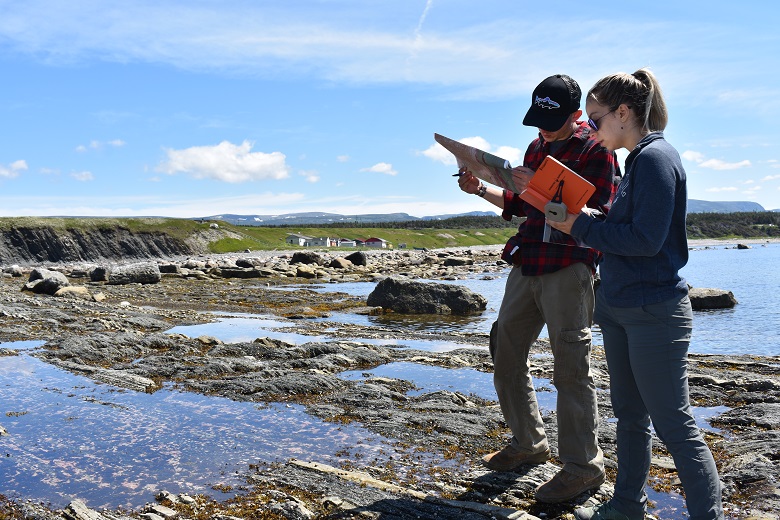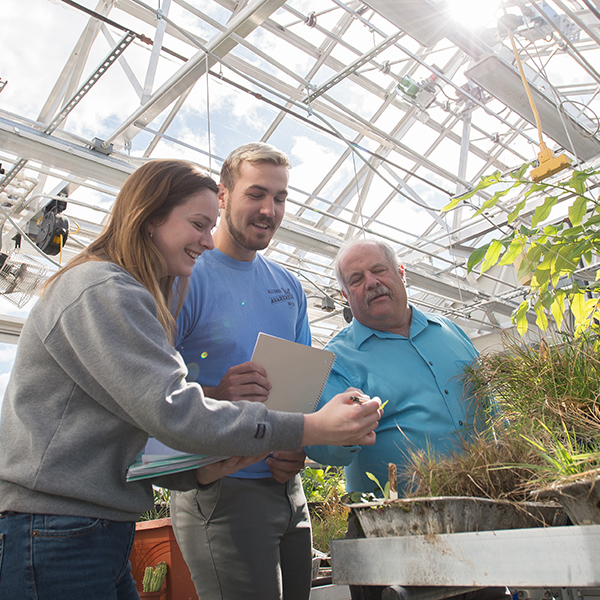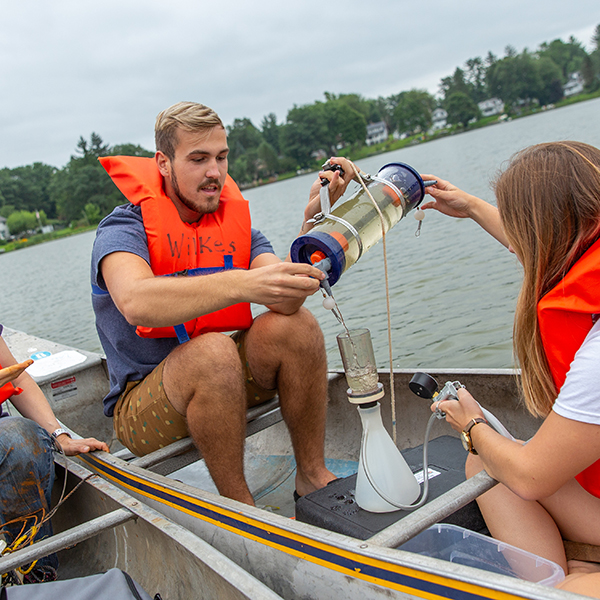The Earth is your classroom as a Geology major! You will learn in the field, side-by-side with your professors, travel across the U.S. and Canada, and develop skills that are valued by employers and necessary for professional licensure.
Program Snapshot
| Program Type | Format | Credit Hours |
|---|---|---|
| Major, Minor | On Campus | 122 (18 for minor) |
Why Study Geology at Wilkes?
As a geology major, you’ll work closely with professors to analyze sedimentary rocks to reconstruct past climate conditions, investigate water resources and their impact on communities, discover and map natural hazards, and utilize advanced technologies to examine subsurface materials and structures to characterize pollution and environmental site conditions.
Our Geology program is designed to prepare students for professional licensure. Built on a foundation of diverse coursework, our curriculum provides an excellent foundation in a variety of Geology subdisciplines. You will be prepared to address societally relevant topics, such as climate change, water resources, soil/water contamination, and the exploration and sustainable extraction of mined resources while using modern techniques that include data analytics.
What Will You Learn as a Geology Student?
- Learn to identify Earth materials and analyze forces that act within the Earth to produce major features of the Earth’s crust, and understand the processes that sculpt the Earth’s surface.
- You’ll know how to identify and recognize resources that are vital to modern societies and apply this knowledge to solve industrial and societal problems.
- In addition to traditional Geology courses, the curriculum includes topics such as hydrogeology, paleoclimatology, climate modeling, applied geophysics, geographic information Science, remote sensing, and more.
- Mapping, topography, watersheds, natural hazards and more are taught using physical models, such as a stream table, or a 3D augmented reality sandbox — a dynamic educational tool that uses motion sensors and specialized software to map elevation contour lines onto the sand in real-time.
- You will use the scientific method (observation, data collection, analysis and interpretation) to solve Earth system issues.
- Develop skills to effectively communicate with different audiences through a diverse range of communication methods, learn problem-solving skills and interdisciplinary thinking, and the ability to recognize patterns and understand complex systems.



